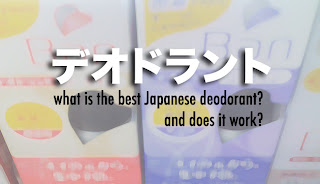Just a little for the moment about one small aspect of my favorite city in Asia (where I've only ever been to one country), Kyoto.
It isn't really main street, of course (no jokes about chow mein street please). For me, in Kyoto, it was three streets mostly, Shijo Dori ("Fourth Street," close enough) Karasuma Dori, the street I walked down to get to the station, and Kawaramachi Dori.
 |
| Day when seven adheres |
Despite its largely old-world snooty whatever reputation, doubtless deserved in the main, Kyoto is loaded with pachinko parlors. On the off-hand chance that you're neither East-Asian nor Jewish,
pachinko is the Asian version of slot machines, played with little silver balls, the size of peas, about. For purposes of this blog, and probably only for those purposes, I really wanted to pop into one of those parlors and take a gander.
The only problem is that, like slots, pachinko machines require the air to contain two parts per two-and-a-half of cigarette smoke in order to function. One is minding one's own business, Japan's number one pastime, walking down the street, and suddenly the automatic doors of a pachinko room will open in order to allow a person to enter or escape, and passers-by are hit with a huge blast of cigarette-perfumed pachinkorrhea. One also hears the little bells announcing to the other players and outsiders that yet another lucky player has been rewarded with a payoff.
Your Life Could Be So Cool
You kind of notice a couple of things right off. The first is that the only way you can think of to make money faster and easier than owning a pachinko parlor would be just to go into a bank and help yourself. That appears to be against the social norms here, though, so most people don't do it. Other than that, making money this way involves a two step process: (1) set up one of these pachinko parlors and (2) wait.
I know it sounds a lot like Las Vegas and for all I know it is, but in Las Vegas you get a sense of lots of pesky Gaming Regulators and that sort of thing, to kind of put some sort of, I don't know, challenge into the whole thing. They may have regulators here for all I know but it kind of doesn't feel like it. I don't know what the Gaming Regulatory Menace feels like, really, though, so maybe I should just Shut Up About It.
 |
| Ways you could be if you played Pachinko |
The other thing I DID notice was the advertising, which is to say, really, the marketing. The marketing is not about winning money or thinking you might win money or even having fun. The marketing is about how cool your life would be
if you played pachinko right now.
You're walking down the street, engaging in You Know What, and all of a sudden it comes into your head that your life could be really cool. Depending who you are and what you'd like to look like and what sort of person you'd like to attract to your completely awesome new presence, there's a poster image for you. They don't really tell you which image you'd look like or be like or who you'd attract -- they just put the images on the posters and let your imagination do the rest.
The images are mostly of hot chicks and, excuse me, power-rangery type dudes, mostly. So if you spend your time going to work either on foot or on the subway, with a navy blue suit (men and women both wear navy suits mostly) and white shirt and soon-to-be-unpatriotic (I'll explain that another time) tie, which is to say, half the population of Kyoto, or if you wear any uniform other than the above-described, which is to say, the other half of the population, and you want to become really cool, come on in and play pachinko. If you're a Japanese guy in particular, other than Ken Watanabe, this has a certain appeal.
The Luck Factor
The other part of this that I find fascinating is the peculiar Japanese fascination with Luck. Or maybe I should say East Asian. (BTW if you're over 47, "East Asian" means "oriental." I have no idea whatever happened to that word, when it became out of fashion to use it or anything, I don't think it's exactly on the list of Words You Should Not Say, but just for purposes of this blog, go with me.)
 |
| Spock's Life Could Be So Cool |
The thing is, East Asians as a group are often considered very logical and pragmatic. So, yeah, if the Earth were the USS Enterprise, you know who the Japanese and Chinese would get to play. Also, they don't normally get hooked into dogmatic religious controls of their behavior. But the thing is, luck does seem to form part of their culture, and it does kind of, in a strange way, affect their daily behavior.
Where I'm going with this ("Aha!" you say. "I knew there was going to be a Point!") is that the pachinko parlors also really play on the luck thing. Again, they don't talk of this really in terms of money won or lost. And well they might not. They just seem to suggest that if you play pachinko the force is going to be with you. Hence the top photo.
Day when seven adheres
The top photo, I don't know how well y'all in the back can see this, some of these if you click on them will open up. The top photo is of a poster both on and outside a pachinko room that says, among other things, "7 17 27. Days when seven adheres."
Odd numbers in Japan are lucky. Which, you know, really ups Your Chances To Win. In the U.S., as far as I know, it's mostly 7 good, 13 bad, and the rest is just you pick 'em. But in Japan, pretty much your chances of getting lucky is 50%, while getting unlucky is mostly limited to the number 4, about which later, although it could be said that with odd numbers lucky, you're kind of unlucky just by not ending up with one.
But in any event, this poster is calling on the forces of 7. I don't think they're telling us all to come back and be big winners on July 17 2027 (although I'm guessing that's going to be a big day for the stockholders in the pachinko-parlor world). I think that they're suggesting that the forces of, I don't know, good lucky strength powerness, whatever, will be at their top strength powernessness on those three days of the month, 7, 17, 27. You know, days when 7 adheres. So that's good because even poor little February has all those days. Anyway, I took that picture on the 16th I think, so they must have put out their posters just to really get people in the mood for thinking about strength powerness. Whether they had similar posters for other odd days I don't remember, because I wasn't really looking at their posters earlier, just mostly trying to avoid the nicotene blasts.
お帰りなさい Welcome back
I'm back in the US now. I miss Kyoto, I told you I would, but I slept in a bed last night and that felt kind of luxurious.
I have a friend who told me this trip would change me, and it has, at least for now. It has changed me in some ways I know, and in other lifestyle ways I hope stick with me for a while. And it's changed me I'm sure, for better or worse, in some ways I really have no idea of.
I don't want to harp on this; no, ok, I do for a little while. I was in the airports, it seemed so long, it felt like a couple dozen of them yesterday (got the bus at 6 a.m. for Itami airport Osaka, to Tokyo, to Chicago, to Dulles DC, to Greenville/Spartanburg). Almost nobody was taking the stairs at any of those airports outside of Japan.
 |
| Stairs are usually quicker. This photo is in Korea BTW. |
It sounds a whole lot, I know, like I'm criticizing these non-stair takers, but I promise I'm not. I worry about two things in this blog, a lot. I worry about a lot of stuff a lot of the time, but here, I worry about sounding like I'm down on the US and Americans, and I worry about sounding like I think the Japanese are better than we are. I don't think any of those things. But I think there are probably things almost every society could learn to its benefit from others. There are, IMHO, plenty of things the Japanese society could learn to its benefit from ours. But the idea that the less I move my body the happier I'll be, even in the short run, is something I hope to have shed myself of for a while.
The Staring Principle
Toward the last couple of days in Japan I started taking photos of things I had meant to take them of before. I regret that I operated a little on the Staring Principle of candid photography, which is my theory that taking a candid photo of someone I don't know is kind of the electronic equivalent of staring at that person, and I didn't do it more than I had to, or at least I tried not to let them know I was doing it. And so I don't have a lot of candid photos of Japanese people, or that is to say, not many good ones.
 |
| click for a larger version |
I did get this photo in the last day or two of one set of stairs up from the subway stop at the intersection of Shijo Dori and Karasuma Dori, the stop closest to my ryokan. It shows the number of calories per step. I don't know exactly who this is for, or what it means -- is this the difference between taking that step and standing on an escalator for the same period of time? Is this the amount for some person of hypothetical Average Japanese Weight? Heavier people are lifting more weight up a stair than lighter people and presumably have to use more energy to do it.
Anyway, what it did for me was remind me, every time I got to the foot of an escalator/stair alternative, that I had a choice. That's all.
P.S. If you're interested, I've started going back to old posts and putting in some photos. Changed the one of Ken Watanabe too.
Update 13 March 2013:
According to one of my gurus,
Namiko Abe, the word for nine, which can be pronounced "ku," (although it can alternatively be pronounced "kyu," which sounds like "ku" but I believe is unrelated), is the same pronunciation for the word for "agony" or "torture." So, you don't want agony or torture to adhere I guess, and that makes that one unlucky, especially, she says, in hospitals, which sometimes eliminate those floors from their numbering system.
Interestingly, in their neo-Japano-western paracultural way they sometimes also eliminate the 13th floor out of a sort of pro-western sensibility.
So, I suppose it's possible to explain to someone that your office is on the 17th floor of a 14-story building. Another reason to love Japan, not that either of us needs one.































